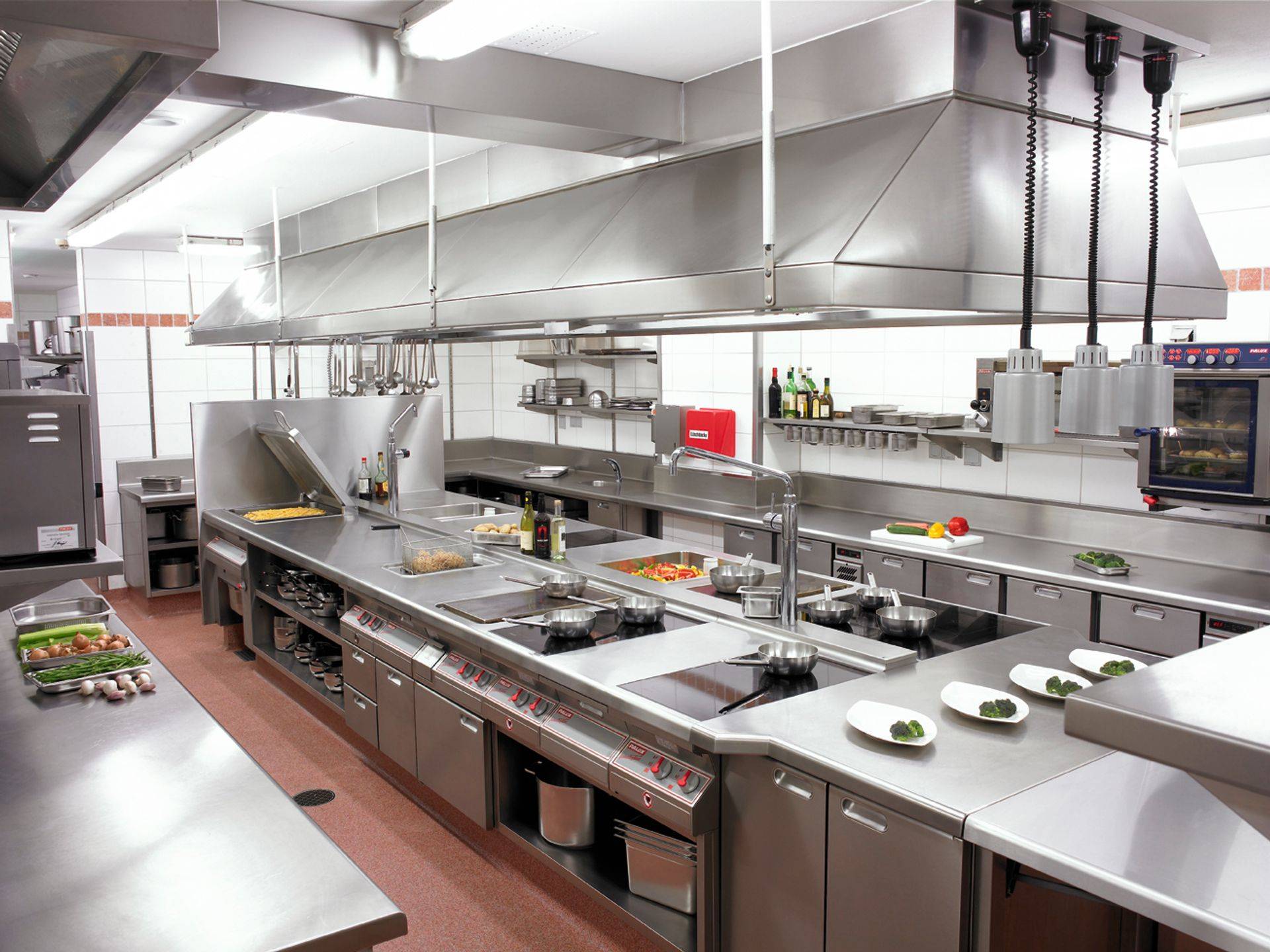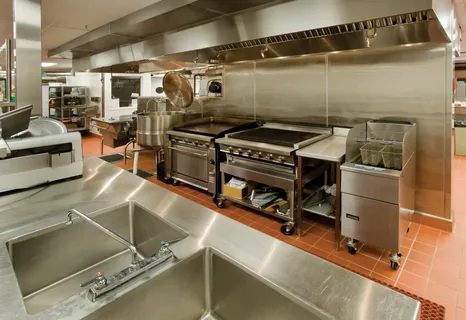Running a commercial kitchen is no easy feat, and it often comes with its fair share of challenges. From managing inventory to keeping up with customer demand, there’s never a dull moment in the food service industry. One of the biggest dilemmas faced by commercial kitchen owners in Sydney is selecting and maintaining the right equipment. With so many options available on the market, it can be overwhelming to know which ones to choose and how to keep them running efficiently. In this blog post, we will explore some of the most common Commercial Kitchen Equipment Sydney dilemmas faced by business owners and offer solutions to help make your kitchen run smoothly.
Understanding the Essentials of Commercial Kitchen Equipment
Running a successful commercial kitchen requires having the right equipment in place. Understanding the essentials of commercial kitchen equipment is crucial for ensuring smooth operations and delivering high-quality food to your customers.
One of the first things to consider when it comes to commercial kitchen equipment is the type of cooking equipment you will need. It includes ranges, ovens, grills, fryers, and steamers. Each of these pieces of equipment serves a specific purpose and should be selected based on your menu and cooking style.
Another essential aspect of commercial kitchen equipment is refrigeration. Having proper refrigeration units, such as walk-in coolers and freezers, is essential for storing ingredients and preserving the freshness of food items. Additionally, having refrigerated prep tables and display cases can enhance efficiency and showcase your culinary creations to customers.
Ventilation systems are often overlooked but are essential in maintaining a comfortable and safe environment in the kitchen. A good ventilation system helps to remove smoke, odours, and excess heat, ensuring the well-being of your staff and providing a pleasant dining experience for your customers. Lastly, remember small appliances and utensils. Having high-quality blenders, mixers, slicers, and other small equipment can greatly enhance productivity and efficiency in the kitchen.
Common Problems Associated with Commercial Kitchen Equipment
Running a commercial kitchen comes with its fair share of challenges, and one of the biggest dilemmas faced by Sydney business owners is dealing with common problems associated with commercial kitchen equipment. Here are some of the most frequent issues and their solutions:
- Breakdowns and malfunctions: Equipment breakdowns can cause major disruptions in the kitchen. Regular maintenance and inspections are crucial to catch and address any issues before they escalate. It’s also essential to invest in high-quality equipment from reputable brands to minimize the risk of breakdowns.
- Inefficient performance: Inadequate cooking or refrigeration performance can result in undercooked food or spoiled ingredients. Make sure you understand the capabilities of your equipment and adjust cooking times and temperatures accordingly. Regularly clean and maintain your equipment to ensure optimal performance.
- Energy consumption: Commercial kitchen equipment can consume a significant amount of energy, leading to high utility bills. To reduce energy costs, consider investing in energy-efficient appliances and follow proper usage guidelines. Turn off equipment when not in use and optimize your kitchen layout to minimize energy wastage.
- Lack of space: Limited kitchen space can make it challenging to fit all the necessary equipment. Consider innovative storage solutions and prioritize multi-functional equipment that can serve multiple purposes. Additionally, regularly evaluate your menu and remove any optional equipment.
 Cleaning Your Commercial Kitchen Equipment Sydney
Cleaning Your Commercial Kitchen Equipment Sydney
Keeping your commercial kitchen equipment clean is not only essential for maintaining a sanitary environment but also for prolonging the life and efficiency of your equipment. Regular cleaning can help prevent the buildup of grease, grime, and food particles that can affect the performance of your equipment and even lead to breakdowns.
Start by establishing a cleaning schedule for each piece of Commercial Kitchen Equipment Sydney. It should include daily, weekly, and monthly tasks. Daily cleaning should involve wiping down surfaces, removing debris, and emptying and cleaning grease traps. Weekly cleaning can include deep cleaning of ovens, grills, and fryers, as well as descaling coffee machines and sanitizing prep tables. Monthly tasks can include thorough cleaning of refrigeration units, ventilation hoods, and exhaust systems.
Use appropriate cleaning products and tools for each task. For example, stainless steel surfaces can be cleaned with mild detergent and warm water, while heavy-duty degreasers may be needed for greasy equipment. Be sure to read and follow the manufacturer’s instructions for cleaning and maintenance.
In addition to regular cleaning, it’s important to address any spills or messes immediately to prevent them from becoming harder to clean later. Encourage your staff to be diligent in cleaning up after themselves and provide them with the necessary tools and supplies to do so.
Effective Solutions to Common Commercial Kitchen Equipment Issues
Running a commercial kitchen can be a challenging task, especially when faced with common equipment issues. Fortunately, there are effective solutions that can help alleviate these problems and ensure the smooth operation of your kitchen.
One common issue is equipment breakdowns and malfunctions. To address this, it is crucial to invest in high-quality equipment from reputable brands. Regular maintenance and inspections are also important to catch any issues before they escalate. By being proactive in these areas, you can minimize the risk of equipment breakdowns and keep your kitchen running smoothly.
Another area for improvement is the efficient performance of cooking and refrigeration equipment. To tackle this problem, it is important to understand the capabilities of your equipment and adjust cooking times and temperatures accordingly. Regular cleaning and maintenance can also ensure optimal performance.
Energy consumption is another concern for commercial kitchens. To reduce energy costs, consider investing in energy-efficient appliances and following proper usage guidelines. Additionally, turning off equipment when not in use and optimizing your kitchen layout can help minimize energy wastage.
Lack of space can also pose challenges in a commercial kitchen. To maximize space, consider innovative storage solutions and prioritize multi-functional equipment that can serve multiple purposes. Regularly evaluating your menu and removing any non-essential equipment can also free up valuable space.
Optimizing Efficiency with Your Commercial Kitchen Equipment
When it comes to running a commercial kitchen, efficiency is key. Optimizing the efficiency of your commercial kitchen equipment can help you save time, money, and energy while ensuring smooth operations and delivering exceptional results. Here are some tips to help you get the most out of your equipment and maximize efficiency.
Firstly, it’s important to have a well-organized kitchen layout. Design your kitchen in a way that minimizes unnecessary movements and maximizes workflow. Keep frequently used equipment within easy reach and arrange your kitchen stations strategically to avoid congestion.
Next, make sure your equipment is properly maintained. Regularly inspect and clean your equipment to prevent breakdowns and malfunctions. Develop a maintenance schedule and stick to it, ensuring that all necessary repairs and replacements are taken care of promptly. Proper maintenance will not only prolong the lifespan of your equipment but also keep it running at peak performance.
Additionally, train your staff on the proper usage and handling of equipment. Please provide them with clear instructions and guidelines to ensure that equipment is used correctly and efficiently. Proper training can help reduce mistakes, prevent accidents, and increase productivity.
Investing in energy-efficient equipment can also greatly improve efficiency in your commercial kitchen. Energy-efficient appliances consume less energy, reducing your utility bills and minimizing environmental impact. Look for appliances with energy-saving features and certifications to ensure you’re making the most sustainable choice.
Avoiding Costly Commercial Kitchen Equipment Mistakes
When it comes to commercial kitchen equipment, making mistakes can be costly. Not only can it result in equipment breakdowns and malfunctions, but it can also lead to inefficiencies, increased energy consumption, and even safety hazards. To avoid these costly mistakes, it’s important to be proactive and take preventative measures.
One common mistake is paying attention to regular maintenance and inspections. You need to properly maintain your equipment to avoid breakdowns and malfunctions, which can be expensive to repair or replace. Establishing a maintenance schedule and sticking to it can help catch any issues before they escalate.
Another mistake is not investing in high-quality equipment from reputable brands. While it may be tempting to go for cheaper options, low-quality equipment is more likely to break down and require frequent repairs. Investing in high-quality equipment from trusted brands may cost more upfront, but it can save you money in the long run.
Additionally, failing to train your staff on proper equipment usage and handling can lead to mistakes, accidents, and damage to equipment. Providing clear instructions and guidelines, as well as offering training sessions, can help ensure that your staff knows how to operate the equipment correctly.
FAQs
Have some burning questions about commercial kitchen equipment in Sydney? We’ve got you covered! Check out these frequently asked questions to get the answers you need:
Q: What are the must-have pieces of Commercial Kitchen Equipment Sydney?
A: The essentials include ranges, ovens, grills, fryers, steamers, walk-in coolers, freezers, refrigerated prep tables, and ventilation systems.
Q: How can I prevent breakdowns and malfunctions in my equipment?
A: Regular maintenance and inspections are key. Invest in high-quality equipment and follow the manufacturer’s maintenance guidelines.
Q: What can I do to maximize energy efficiency in my kitchen?
A: Look for energy-efficient appliances, turn off equipment when not in use, and optimize your kitchen layout to minimize energy wastage.
Q: How often should I clean my commercial kitchen equipment?
A: Establish a cleaning schedule with daily, weekly, and monthly tasks. Use appropriate cleaning products and tools for each piece of equipment.
Q: What should I do if I have limited space in my kitchen?
A: Prioritize multi-functional equipment and consider innovative storage solutions. Regularly evaluate your menu and remove any non-essential equipment.
Conclusion
In conclusion, running a commercial kitchen in Sydney comes with its fair share of challenges, especially when it comes to selecting and maintaining the right equipment. However, by understanding the essentials of commercial kitchen equipment, addressing common problems, implementing effective solutions, optimizing efficiency, and avoiding costly mistakes, you can ensure that your kitchen runs smoothly and efficiently. By investing in high-quality equipment, regularly cleaning and maintaining it, training your staff, and considering energy-saving measures, you can overcome the dilemmas associated with commercial kitchen equipment and deliver exceptional results to your customers.
| Other Good Articles to Read |
| Skank Blogs |
| Unreal Blogs |
| Tba Blogs |
| All City Forums |
| Dany Blogs |
| Refuge Blogs |
| Key Forums |
| The Big Blog Theory |
| Joe Blogs |
| Blogs 4 Me |
| Blogs Emon |

